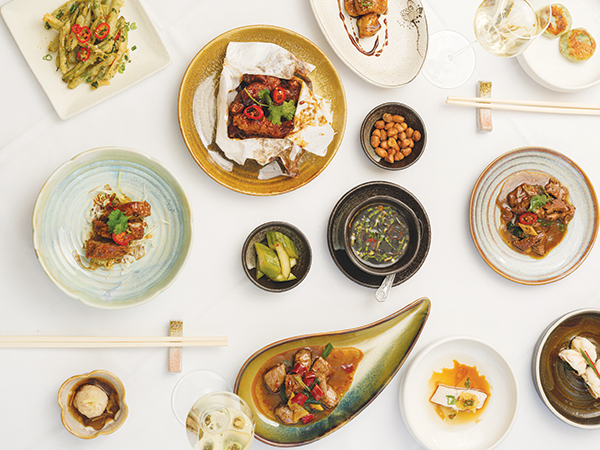No-menu restaurant serves decades-long legacy of success


Hunan, a restaurant in the heart of central London's Belgravia district, stands out as one of the most distinctive Chinese restaurants in the United Kingdom's capital with its unusual no-menu approach to dining.
For more than four decades, Hunan has defied convention, offering a culinary experience that blends innovation with authenticity.
Michael Peng, who took over the restaurant from his father in 1999, continues to honor its trailblazing ethos while introducing his own modern touches.
Hunan's story began in 1982, when Peng's father, a passionate chef who started cooking at 14, decided to offer something beyond the predominantly Cantonese fare that characterized Chinese restaurants in the UK at the time.
"He wanted to introduce a different type of cuisine," Peng explains. "He felt Chinese food wasn't limited to just Cantonese."
Initially focusing on Hunan cuisine, which is known for its spicy flavors and fresh aromas, Peng's father later incorporated elements of Taiwanese and Cantonese culinary traditions. At the heart of this innovation was a bold and unconventional approach — a no-menu dining experience, which became the restaurant's signature style.
"My father initially had a small a la carte menu, but most people would order from it and get something entirely different," Peng says with a laugh. "There were a lot of arguments when the bill came. People would say, 'I didn't order this', and my father would reply, 'I gave you a better dish'."
When Peng took over, he embraced this philosophy, eliminating the a la carte menu entirely.
Today, Hunan serves a curated selection of 12 to 18 dishes, meticulously tailored to each diner's preferences, dietary needs, and even cultural background.
The "leave it to us" approach, where diners trust the chefs to craft their meals, was ahead of its time in the 1980s but is now celebrated worldwide.
"Back then, it was unheard of," Peng says. "But now, it's quite common, especially with Japanese omakase-style dining."
While preserving his father's legacy, Peng brought his own modern touch to Hunan.



































